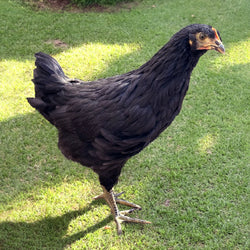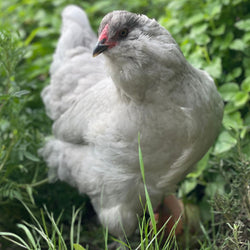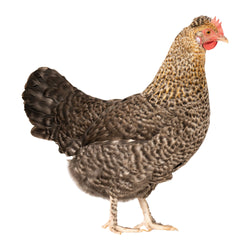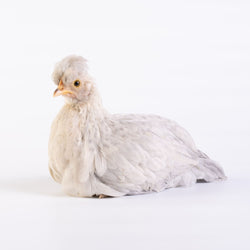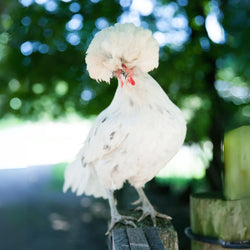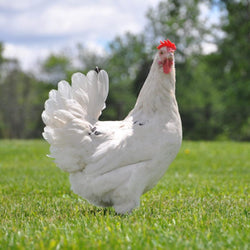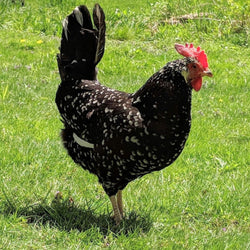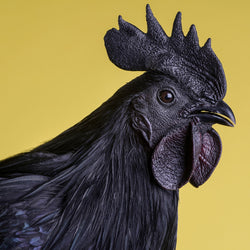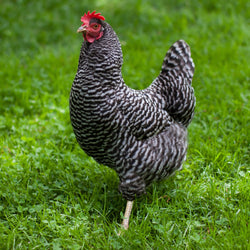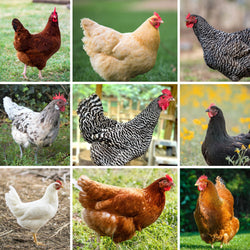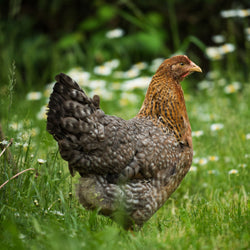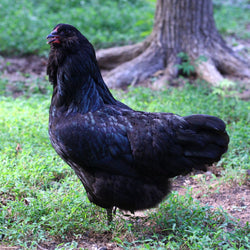page=2/--
Frequently Asked Questions
Here we answer the most commonly-asked questions about ordering, chicken care, and more.
What is a chicken coop?
The word "coop" simply refers to the structure that your chickens live in. A run refers to the enclosed part of the chickens' area that is outside, ideally with access to pasture. In hot dry areas, sometimes coops are three-sided, with the fourth wall made of welded wire for security against predators. The "missing" wall provides extra ventilation and makes sure the coop doesn't get too hot inside. In cold areas, they can be quite small. A coop can be a purpose-built structure or a converted shed or building, made of wood, plastic, adobe, etc. They can be large or...
Read MoreWhat is a nest box?
A nest box is an enclosed area meant to give chickens a place they feel comfortable laying their eggs.Chickens generally prefer darkened, cozy places where they feel safe. We say "generally," here, because new layers may not understand what their instincts are telling them to do. Many lay an egg or two on the floor. Some feel like they need to find a spot outside the coop to lay (such as under your porch!), and so on. It may take some time and effort to "teach" them to lay in the coop. And some may always prefer to lay in...
Read MoreWhat is wire gauge, and why should I care about it?
When you're looking at fencing or hardware cloth for your flock's enclosure, you may run into the term "wire gauge," and wonder that that is, and which is best! Wire gauge is essentially just a measurement of how thick the wire is. In terms of fencing here in the US, the LOWER the gauge, the thicker the wire. Thicker wire, of course, is sturdier and will provide more predator protection, because predators will be less likely to be able to tear through it. On the other hand, thicker wire will also be harder to manipulate, and will require a lot...
Read MoreWhat is a chicken run?
A chicken run is the fenced or enclosed outdoor space you provide for your chickens. The coop is the indoor space---where they go to sleep on their roost and lay eggs in their nests---and the run is the outdoor space, where they may sun bathe or dust bathe, forage in garss and scratch in the dirt. In general, you want to provide your chickens a MINIMUM of about 10 square feet per bird of space overall, split between the coop and the run. The more space the better! Since chickens prefer to spend most of their time outdoors foraging in...
Read MoreWhat is the best location for a chicken coop? Top 10 Tips
There are many considerations to take into account when determining the best location for a chicken coop. Here are 10 tips that can help you find just the right spot: 1. Keep Your Coop Close to Your Home. If your coop is far away from your house, it's easy to lose interest in caring for your birds on a daily basis. There's no need to make chores more difficult! Therefore, position your coop close enough to the house for easy egg collection and daily care tasks. Yet far enough to keep any smells or flies away from the home. Also,...
Read MoreCan ducks and geese be outside during the winter?
Yes! Ducks and geese can be outside during winter! They have a wonderful fluffy undercoating beneath their feathers called "down." Ever had a down jacket? It kept you toasty-warm, right? Ducks and geese get to wear that jacket all the time. Lucky birds, I know!In addition to their down feathers, ducks and geese have a layer of fat beneath the skin that provides even more insulation. Tips for Managing your Ducks and Geese Outside During Winter Shelter: When conditions are the harshest, even the best winter coat may not be enough. If the temperature is going to be below...
Read MoreWhich chicken breeds may need extra heat in winter?
Chickens are incredibly adaptable! They are kept all over the world in all kinds of extreme climates. But it's no secret that some breeds are hardier in cold weather than others. Some breeds were not developed for cold-hardiness or have characteristics that make them more susceptible to cold than others. In a well-ventilated but not drafty coop, most chickens can stay warm by fluffing up their feathers to trap a layer of warm air against their bodies--as long as they are not wet and or exposed to a draft. Drafts can remove that "jacket" of warmer air surrounding the bird....
Read MoreHow many chickens should I get?
We'd like to answer this question, "dozens and hundreds!" because keeping chickens is so wonderful--but for the health and safety of the birds (and the financial and psychological well-being of our customers!) it's best to actually plan and strategize before you start your flocks. In light of that, here are some factors to consider when deciding how many birds to get: The social needs of chickens Chickens are flock animals that interact with on each other in various ways including dust bathing, grooming, broodiness and sharing egg boxes, chick-raising, warmth, protection, and perhaps even chicken friendship. Because of this, it's...
Read More- 1
- 2








"The Clubhouse" Coop
Easy to assemble and built to last, the Clubhouse Coop is the perfect starter coop for a small flock.
